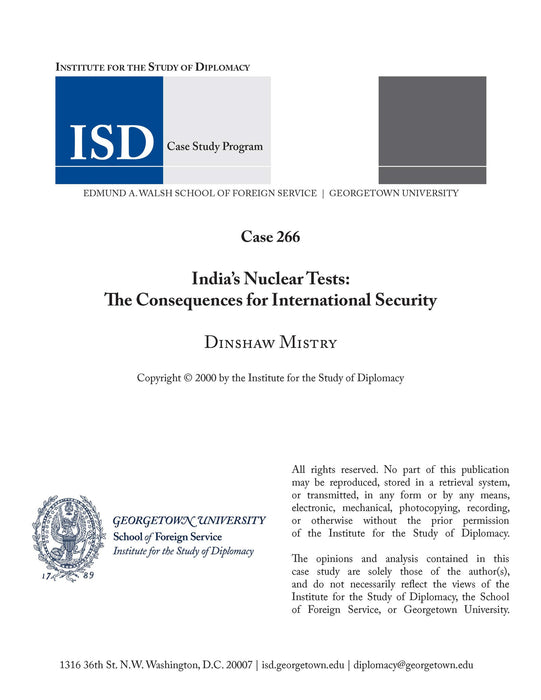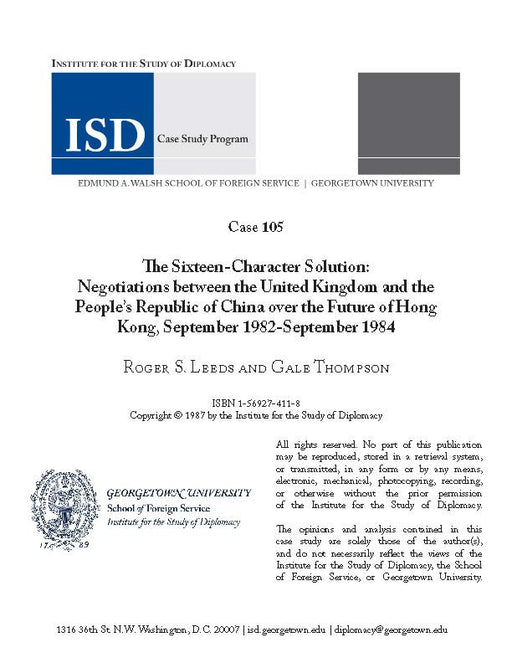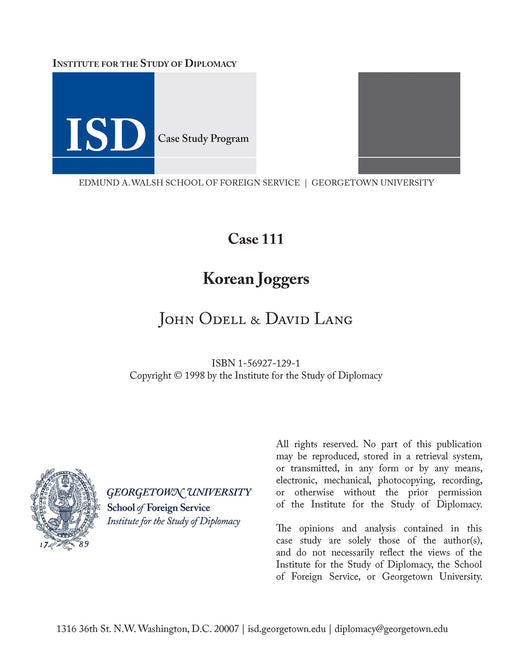Case 266 - India's Nuclear Tests: The Consequences for International Security
Mistry, Dinshaw
In 1996, India rejected the Comprehensive Test Ban Treaty, arguing that the CTBT was not conceived as a measure towards universal nuclear disarmament. Two years later, it conducted its first nuclear tests, and shortly thereafter, Pakistan followed suit. Nuclear testing in South Asia had ominous implications for international security: it not only signaled the formal emergence of two new nuclear powers, but broke the global norm against proliferation and testing. This case study, created for the Carnegie Council on Ethics and International Affairs, asks several probing questions about the ramifications of these events: What effect did India’s rejection of the Nonproliferation Treaty and the Comprehensive Test Ban Treaty, and its subsequent nuclear tests, have upon the cause of disarmament? Did New Delhi gain any national security benefits from its nuclear tests? Finally, what steps can the international community, and the nuclear states, in particular, take to advance nuclear disarmament?



